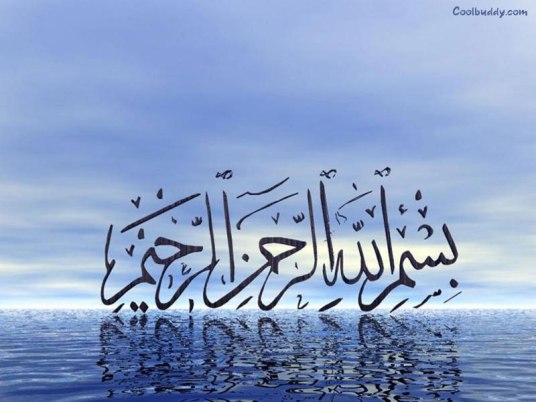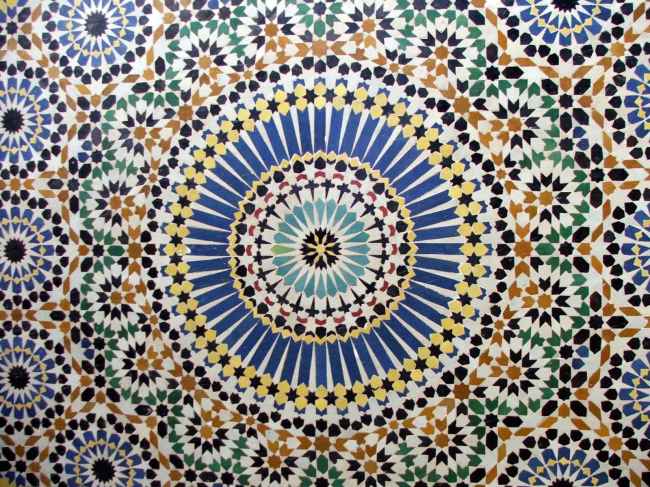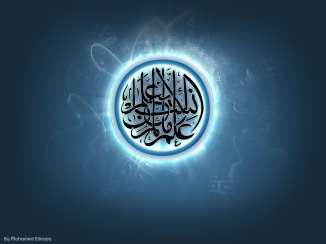Why do we eat?’ ‘Why do we sleep?’ ‘Why do we work?’ The answers we would get to these questions would be straight-forward. ‘I eat to live.’ ‘I sleep to rest.’ ‘I work to support myself and my family.’ When it comes to the purpose of life however, people are confused. We see their confusion by the type of answers we receive. Youths may say, “I live for booze and bikinis.” The middle aged professional might say, “I live to save enough for a comfortable retirement.” The old man would probably say, “I’ve been asking why I’m here most of my life. If there’s a purpose, I don’t care anymore.” And perhaps the most common answer will be, “I really don’t know!
So what is the meaning and purpose of life?’ This is, perhaps, the most important question that has ever been asked. Throughout the ages, philosophers have considered it to be the most fundamental of questions. Scientists, historians, philosophers, writers, psychologists and the common man all wrestle with the question at some point in their lives.
In Islam is the response to humanity’s search for meaning is thus; the purpose of creation for all men and women, for all times has been one: to know and worship God.

Courtesy of freeislamicwallpapers01.blogspot.com
The Quran teaches us that every human being is born conscious of God,
“(Remember) when your Lord extracted from the loins of Adam’s children their descendants and made them testify [saying]: ‘Am I not your Lord?’ They said: ‘Yes, we testify to it.’ (This was) in case you say on the Day of Judgment: ‘We were unaware of this.’ Or you say: ‘It was our ancestors who worshipped others besides God and we are only their descendants. Will you then destroy us for what those liars did?’”(Quran 7:172-173)
The Prophet (S.A.W) of Islam teaches us that God created this primordial need in human nature at the time Adam was made. God extracted all of Adam’s descendants who were yet to be born, generation after generation, spread them out, and took a covenant from them. He addressed their souls directly, making them bear witness that He was their Lord. Since God made all human beings swear to His Lordship when He created Adam, this oath is imprinted on the human soul even before it enters the fetus, and so a child is born with a natural belief in the Oneness of God. This natural belief is called fitra in Arabic. Consequently, every person carries the seed of belief in the Oneness of God that lies deeply buried under layers of negligence and dampened by social conditioning. If the child were left alone, it would grow up conscious of God – a single Creator – but all children are affected by their environment. The Prophet Muhammad (SAW) said,
“Each child is born in a state of ‘fitra’, but his parents make him a Jew or a Christian. It is like the way an animal gives birth to a normal offspring. Have you noticed any young born mutilated before you mutilate them?”[1]
So, just as the child’s body submits to physical laws, set by God in nature, its soul submits naturally to the fact that God is its Lord and Creator. However, its parents condition it to follow their own way, and the child is not mentally capable of resisting it. The religion which the child follows at this stage is one of custom and upbringing, and God does not hold it to account for this religion. When a child matures into an adult, he or she must now follow the religion of knowledge and reason. As adults, people must now struggle between their natural disposition towards God and their desires in order to find the correct path. The call of Islam is directed to this primordial nature, the natural disposition, the imprint of God on the soul, the fitra, which caused the souls of every living being to agree that He Who made them was their Lord, even before the heavens and earth were created,
“I did not create the jinn and mankind except for my worship.” (Quran 51:56)
According to Islam, there has been a basic message which God has revealed through all prophets, from the time of Adam to the last of the prophet, Muhammad (peace be upon them). All them sent by God came with the same essential message:
“Indeed, We have sent a messenger to every nation (saying), ‘Worship God and avoid false gods…’” (Quran 16:36)
The prophets brought the same answer to mankind’s most troubling question, an answer that addresses the yearning of the soul for God.
What is it to worship?
‘Islam’ means ‘submission’, and worship, in Islam, means ‘obedient submission to the will of God.’
Every created being ‘submits’ to the Creator by following the physical laws created by God,
“To Him belongs whosoever is in the heavens and the earth; all obey His will.” (Quran 30:26)
They, however, are neither rewarded nor punished for their ‘submission’, for it involves no will. Reward and punishment are for those who worship God, who submit to the moral and religious Law of God of their own free will. This worship is the essence of the message of all the prophets sent by God to mankind. For example, this understanding of worship was emphatically expressed by Jesus Christ(SAW),
“None of those who call me ‘Lord’ will enter the kingdom of God, but only the one who does the will of my Father in heaven.”
‘Will’ means ‘what God wants human beings to do.’ This ‘Will of God’ is contained in the divinely revealed laws which the prophets taught their followers. Consequently, obedience to divine law is the foundation of worship. Only when human beings worship their God by submitting to His religious law can they have peace and harmony in their lives and the hope for heaven, just like the universe runs in harmony by submitting to the physical laws set by its Lord. When you remove the hope of heaven, you remove the ultimate value and purpose of life. Otherwise, what difference would it really make whether we live a life of virtue or vice? Everyone’s fate would be the same anyway.
Who Needs Worship?
God is in no need of our worship, it is mankind that needs to worship God. If no-one were to worship God, it would not take away from His glory in any way, and if all of mankind were to worship Him, it would not add to His glory. It is we, who are in need of God:
“I need no provision from them, neither do I need that they should feed Me for, surely, God Himself is the Provider of all sustenance, the Possessor of mighty power.” (Quran 51:57-58)
“…But God is Rich, and it is you that are poor…” (Quran 47:38)
How to Worship God: And Why?
God is worshipped by obeying the laws He revealed through the prophets. For example, in the Bible, Prophet Jesus(SAW) made obedience to the divine laws the key to paradise:
“If you want to enter into life, keep the commandments.” (Matthew 19:17).
Also Prophet Jesus(SAW) is reported in the Bible to have insisted on strict obedience to the commandments, saying:
“Whoever therefore breaks one of the least of these commandments, and teaches men so, shall be called least in the kingdom of heaven; but whoever does and teaches them, he shall be called great in the kingdom of heaven.” (Matthew 5:19)
Why do human beings need to worship God by obeying the divinely revealed laws? The answer is simple. Obedience to divine law brings peace to this life and salvation in the next.
Divine laws provide human beings a clear code to guide every sphere of human life and interaction. Since the Creator alone knows best what is best for His creation, His laws protect the human soul, body, and society from harm. In order for human beings to fulfill their purpose of creation, they must worship God by obeying His commandments.
The False Gods of Modernity
God is Who gives meaning and orientation to life. On the other hand, modern life lacks a single center, a single orientation, a single goal, a single purpose. It has no common principle or guideline.
Since Islam considers a god to be an entity that is served out of love, deep respect, and anticipation of reward, one can say that the modern world serves many gods. The gods of modernity give meaning and context to the life of modern man.
We live in a house of language, and our words and expressions are the windows through which we look out at the world. Evolution, nationalism, feminism, socialism, Marxism, and, depending on how they are employed, democracy, freedom, and equality can be listed among the indefinable ideologies of modern times. “Plastic words,” to borrow the words of Uwe Poerksen, a German linguist, have been used to usurp God’s power and authority to shape and define the goal of society, or even of humanity itself. These words have connotations with a ‘feel good’ aura. Indefinable words become a limitless ideal. By making the ideal limitless, unlimited needs are awakened, and once these needs are awakened, they appear to be ‘self-evident.’
As it is easy to fall into the habit of worshipping false gods, people then have no protection against the multiplicity of gods that modern ways of thinking demand that they serve. The “plastic words” give great power to those ‘prophets’ who speak on their behalf, because they speak in the name of ‘self-evident’ truths, so other people keep silent. We must follow their authority; the axiomatic pundits who lay down the Law for our health, welfare, well-being, and education.
The window of modernity through which we perceive reality today is marked by cracks, smudges, blind spots, and filters. It covers the reality. And the reality is that people have no real need except toward God. But nowadays, these empty ‘idols’ have become the objects of people’s devotion and worship, as the Quran states:
“Have you not seen the one who takes his desires as his god?…” (Quran 45:23)
Each of these “plastic words” makes other words appear primitive and out-of-date. ‘Believers’ in idols of modernity are proud of worshipping these gods; friends and colleagues consider them enlightened for doing so. Those who still insist on holding onto the “old” God can cover up the embarrassment of doing so by worshipping the new ‘modern’ gods along with Him. Obviously, many people who claim to worship the “old-fashioned” God will twist His teachings in this event, so that He also seems to be telling us to serve these “plastic words.”
The worship of false gods entails the corruption not only of individuals and society, but also of the natural world. When people refuse to serve and worship God as He has asked them to serve Him, they cannot fulfill the functions for which He has created them. The result is that our world becomes ever more chaotic, just as the Quran tells us:
“Corruption has appeared in the land and the sea because of what the hands of people have earned.” (Quran 30:41)
Islam’s answer to the meaning and purpose of life fulfills the fundamental human need: a return to God. However, everyone is going back to God willy-nilly, so the question is not merely going back, but how one goes back. Will it be in shameful agonizing chains awaiting punishment, or joyful and grateful humility for that which God has promised? If you await the latter, then through the Quran and the teachings of Prophet Muhammad (SAW), God guides people back to Him in a manner that will ensure their eternal happiness.





















